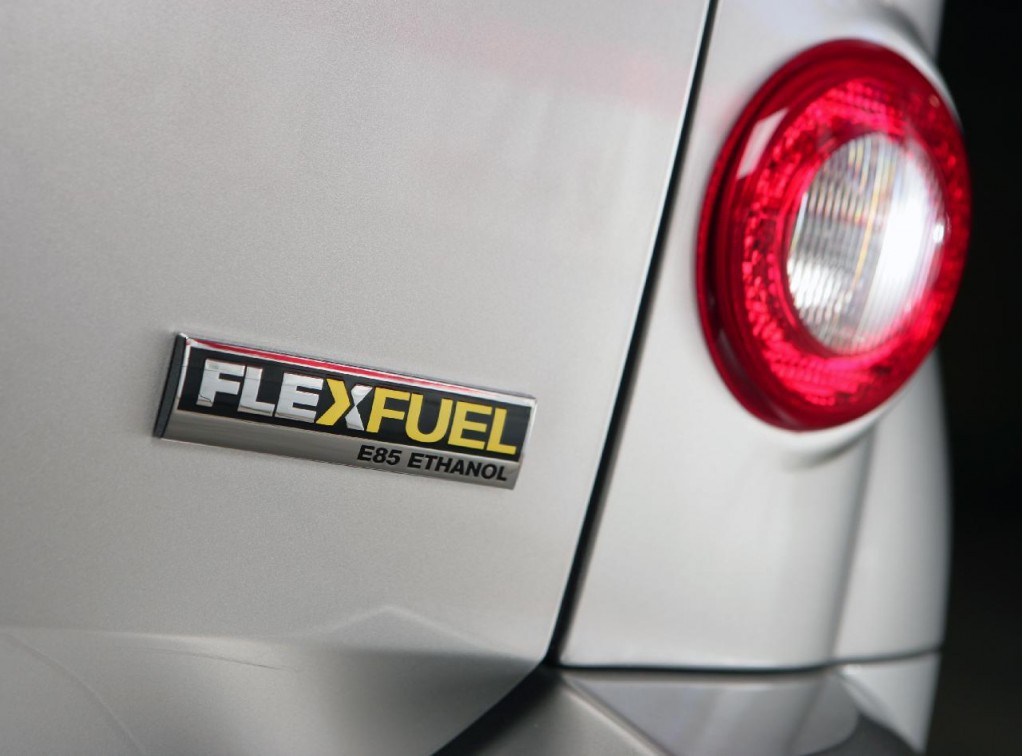The failure of cellulosic ethanol may prove beneficial to oil giant Royal Dutch Shell.
Cellulosic ethanol was seen as an important component of mass ethanol adoption because it is made from non-edible plants.
But despite the hopes of ethanol advocates and policymakers, cellulosic sources never materialized in significant quantities.
DON'T MISS: Fuel from emissions? Catalyst converts carbon dioxide to ethanol
One of the casualties of the cellulosic-ethanol experiment is a plant that Shell may soon acquire at a 95-percent discount, according to Bloomberg.
The plant cost about $500 million to build, but Shell recently submitted a bid for just $26 million.
Located in Hugoton, Kansas, the plant was built by Spanish firm Abengoa SA, and was designed to produce 25 million gallons of cellulosic ethanol a year.

FlexFuel badge on E85-capable 2009 Chevrolet HHR
Abengoa received a $132.4 million U.S. Energy Department loan for the Kansas plant, as well as a $97 million grant.
The company said that it paid back the government loan in full.
ALSO SEE: EPA proposes to add more ethanol blends to 'Flex Fuel' category
Shell believes the Kansas plant could support an ongoing biofuels program, although use of the facility as part of that program is still "subject to a future investment decision," a spokeswoman told Bloomberg.
The fortunes of ethanol have fallen significantly since Congress passed a Renewable Fuel Standard in 2007.
At the time the standard, which requires increasing amounts of ethanol to be blended with the fuel supply, was seen as a way to reduce dependence on foreign oil.

U.S. Capitol Building
But since the standard was enacted, electric cars and increases in the fuel efficiency of internal-combustion engines have lowered overall U.S. fuel consumption.
MORE: Nissan takes a different approach to fuel cells: ethanol
Because the Renewable Fuel Standard calls for fixed amounts of ethanol, this has effectively raised the percentage of ethanol required to what many critics describe as unrealistic levels.
At the same time, the fact that hoped-for cellulosic sources ultimately proved nonexistent added constraints to ethanol production.
[EDITOR'S NOTE: Green Car Reports thanks our tipster, who prefers to remain an International Man of Mystery.]
_______________________________________________












